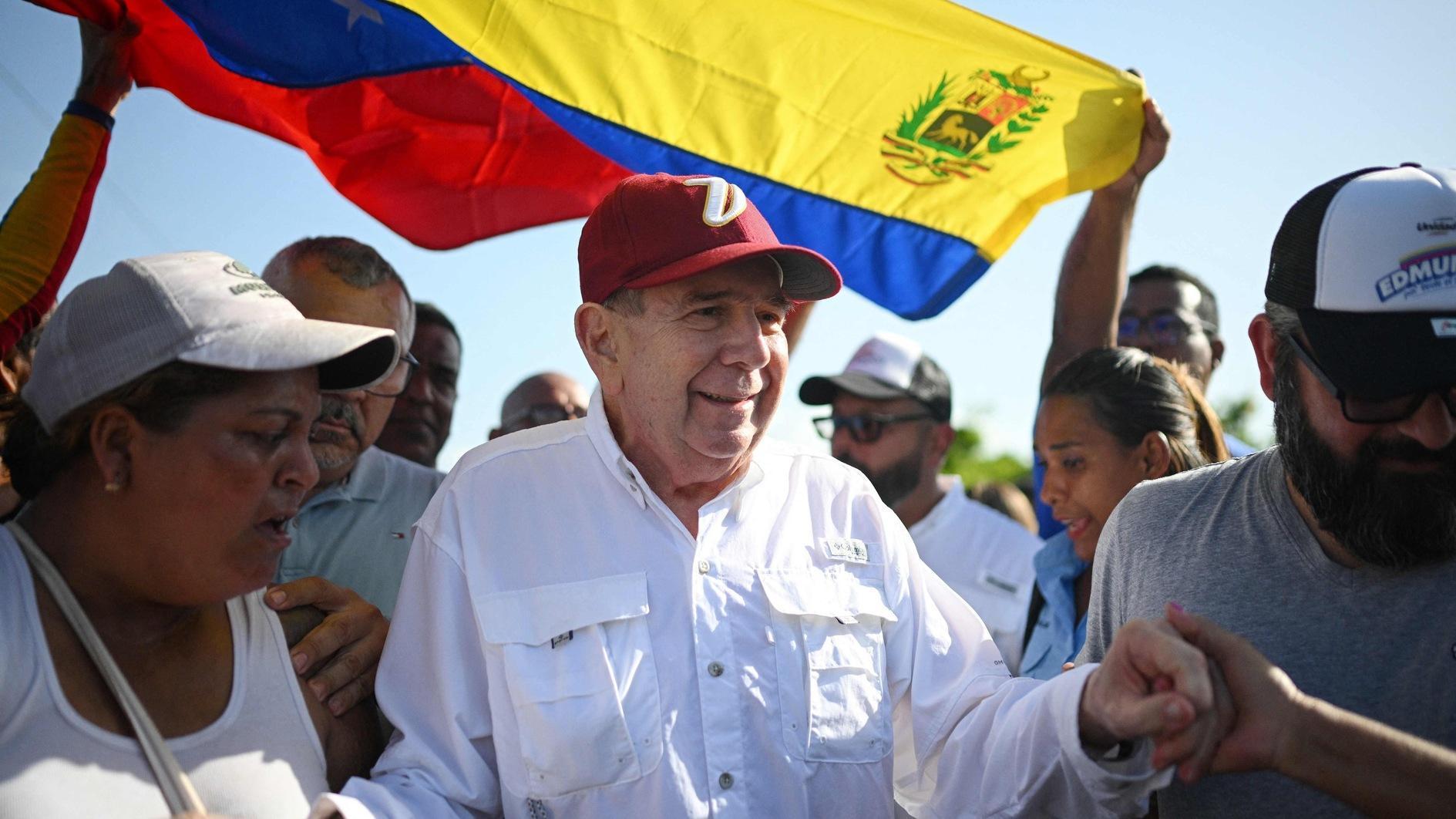
Edmundo Gonzalez Urrutia—who insists he, not strongman Nicolas Maduro, is Venezuela's legitimate president-elect—fled to Spain on Sunday, vowing to "continue the fight" for freedom and democracy.
Gonzalez Urrutia arrived in Madrid after spending weeks in hiding in crisis-torn Venezuela. The opposition claims it can prove he won the July 28 elections, which Maduro claimed as a victory—a result that has been widely disputed.
Shortly after arriving on a military plane, the 75-year-old's press team released an audio message in which he expressed confidence that "soon we will continue the fight to achieve freedom and the recovery of democracy in Venezuela."
According to opposition leader Maria Corina Machado, the decision for Gonzalez Urrutia to leave was due to concerns for his safety, citing a "brutal wave of repression" following the election.
Gonzalez Urrutia replaced Machado on the ballot at the last minute after she was barred from running by institutions loyal to Maduro, who has been accused by observers of human rights violations.
Venezuela's regime-loyal electoral authority, CNE, declared Maduro the election winner, but the opposition contested this outcome. Much of the international community has refused to accept the result without a detailed vote breakdown, which has not been provided.
Authorities issued an arrest warrant for Gonzalez Urrutia, whom Maduro said should be jailed along with Machado. She remains in hiding, aside from leading a handful of anti-Maduro protests since the disputed vote.
Gonzalez Urrutia left Venezuela on Sunday after ignoring three subpoenas to appear before prosecutors, arguing that appearing would endanger his freedom.
Machado said on X that "the increasing threats, subpoenas, arrest warrants and even attempts at blackmail and coercion against [Gonzalez Urrutia] show that the regime has no scruples or limits in its obsession to silence him and try to bring him down."
She emphasized the need to "preserve his freedom, his integrity, and his life."
'A hero'
Madrid announced it would grant asylum to the retired diplomat.
He arrived on a Spanish military plane at the Torrejon air base near Madrid with his spouse around 4:00 pm local time (1400 GMT), according to a statement from the Spanish foreign ministry.
Speaking at a socialist party meeting, Prime Minister Pedro Sanchez described Gonzalez Urrutia as "a hero who Spain will not abandon."
Foreign Minister Jose Manuel Albares stated on radio Onda Cero that Madrid would grant Urrutia asylum, adding that "there has been no political negotiation of any kind between the Spanish government and the Venezuelan government, that is to say, there has been no compensation for Edmundo Gonzalez to be able to leave the country."
Venezuela's Vice President Delcy Rodriguez said on social media that Caracas had agreed to the safe passage of Gonzalez Urrutia, who had taken "refuge voluntarily at the Spanish embassy in Caracas a few days ago."
Attorney General Tarek William Saab told journalists that Gonzalez Urrutia's departure marked the end of what he called a "farcical theater" named "To the End," referring to the opposition's post-election slogan.
He did not indicate whether the investigation against the opposition figure was now closed.
U.S. Secretary of State Antony Blinken said Gonzalez Urrutia "remains the best hope for democracy" in Venezuela, stating that his departure was "a direct result of the anti-democratic measures that Nicolas Maduro has unleashed."
European Union foreign affairs chief Josep Borrell demanded that Venezuelan authorities "end repression, arbitrary arrests, and harassment against members of the opposition and civil society, as well as release all political prisoners."
Disputed election results
Prosecutors had opened an investigation against Gonzalez Urrutia for crimes related to his claim of being the rightful victor of the July election.
Charges include usurpation of public functions, forgery of public documents, incitement to disobedience, sabotage, and association with organized crime, risking a jail sentence of 30 years.
The charges originate from the opposition's decision to publish its own tally of polling station-level ballots, which it claims showed Gonzalez Urrutia winning about two-thirds of the votes.
Venezuela's electoral authority stated it could not provide a breakdown of the election results due to a cyber attack on its systems, although observers have indicated there is no evidence of such hacking.
Post-election violence in Venezuela has resulted in 27 deaths and 192 injuries, while the government reports having arrested approximately 2,400 people.
Following Venezuela's last election in 2018, Maduro also claimed victory amid widespread accusations of fraud. Supported by the military and other institutions, he has managed to retain power despite international sanctions.
Maduro has led the oil-rich but economically struggling country since 2013, during which time the GDP has dropped 80 percent over a decade, prompting more than seven million of the country's 30 million citizens to flee.